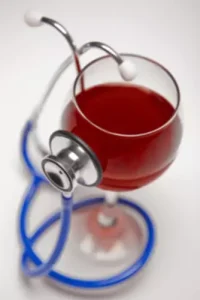Several benzodiazepines can be used, including lorazepam, diazepam, and chlordiazepoxide, preferably administered via an intravenous route. This can be administered based on a symptom-triggered regimen or a fixed schedule. In a symptom-triggered regimen, medications are usually given when symptoms are present, sometimes using a CIWA score greater than 8. In a fixed alcohol withdrawal syndrome symptoms schedule regimen, the benzodiazepine is administered at fixed intervals, and additional doses are given based on the withdrawal symptoms. People with moderate-to-severe alcohol withdrawal symptoms may need to be treated at a hospital or other facility that treats alcohol withdrawal. You will be watched closely for hallucinations and other signs of delirium tremens.
Prevention of further drinking

Heavy drinkers who suddenly decrease or stop drinking altogether may experience withdrawal symptoms. They are potentially dangerous and should be treated as a serious warning sign that you are drinking too much. If you think you’re experiencing PAWS and your symptoms are becoming hard to manage, a doctor or healthcare professional might be able to help.
- If your blood pressure, pulse, or body temperature rises, or if you have more serious symptoms like seizures and hallucinations, seek medical care immediately (dial 911).
- Lifestyle changes that improve sleep habits, exercise, and address underlying health conditions can be an important first step.
- Identify a family member or friend who you can call on to provide emotional support.
- Each of these symptoms can increase in intensity depending on the severity of the withdrawal.
Delirium tremens and seizures
Depending on the severity of your symptoms, your doctor may recommend monitoring a medical setting or at home. Alcohol withdrawal (alcohol withdrawal syndrome) is a range of symptoms that can happen if you stop or significantly reduce alcohol intake after long-term use. The alcohol withdrawal timeline varies, but the worst of the symptoms typically wear off after 72 hours. People who are daily or heavy drinkers may need medical support to quit. Stopping drinking abruptly can lead to seizures and can even be fatal.
How do I relieve symptoms of alcohol withdrawal?

This is the period in which delirium tremens is most likely to occur, which requires immediate medical attention. Delirium tremens is a medical emergency that can result in death. If you or someone you know shows signs of delirium tremens, go to the emergency room immediately. Avoid people who may encourage you to drink alcohol or may not support your decision to stop. It may be easier on your rehabilitation to skip visits with “drinking buddies” or avoid gatherings with a focus on drinking.
Hospitalization
Alcohol Withdrawal Stages and Severity
Can alcohol withdrawal be prevented?

Factors that determine the timeline
- If you suddenly stop drinking or significantly reduce the amount of alcohol you drink, it can cause AWS.
- If you have epilepsy, drinking alcohol can have serious consequences.
- The above-mentioned review states that there’s a lack of research on PAWS from benzodiazepines, but that it can persist for 6 to 12 months — in some cases, even years after stopping benzodiazepine use.
- It’s recommended, however, that they have someone stay with them who can help during recovery.
- But severe or complicated alcohol withdrawal can result in lengthy hospital stays and even time in the intensive care unit (ICU).
Leave a Reply